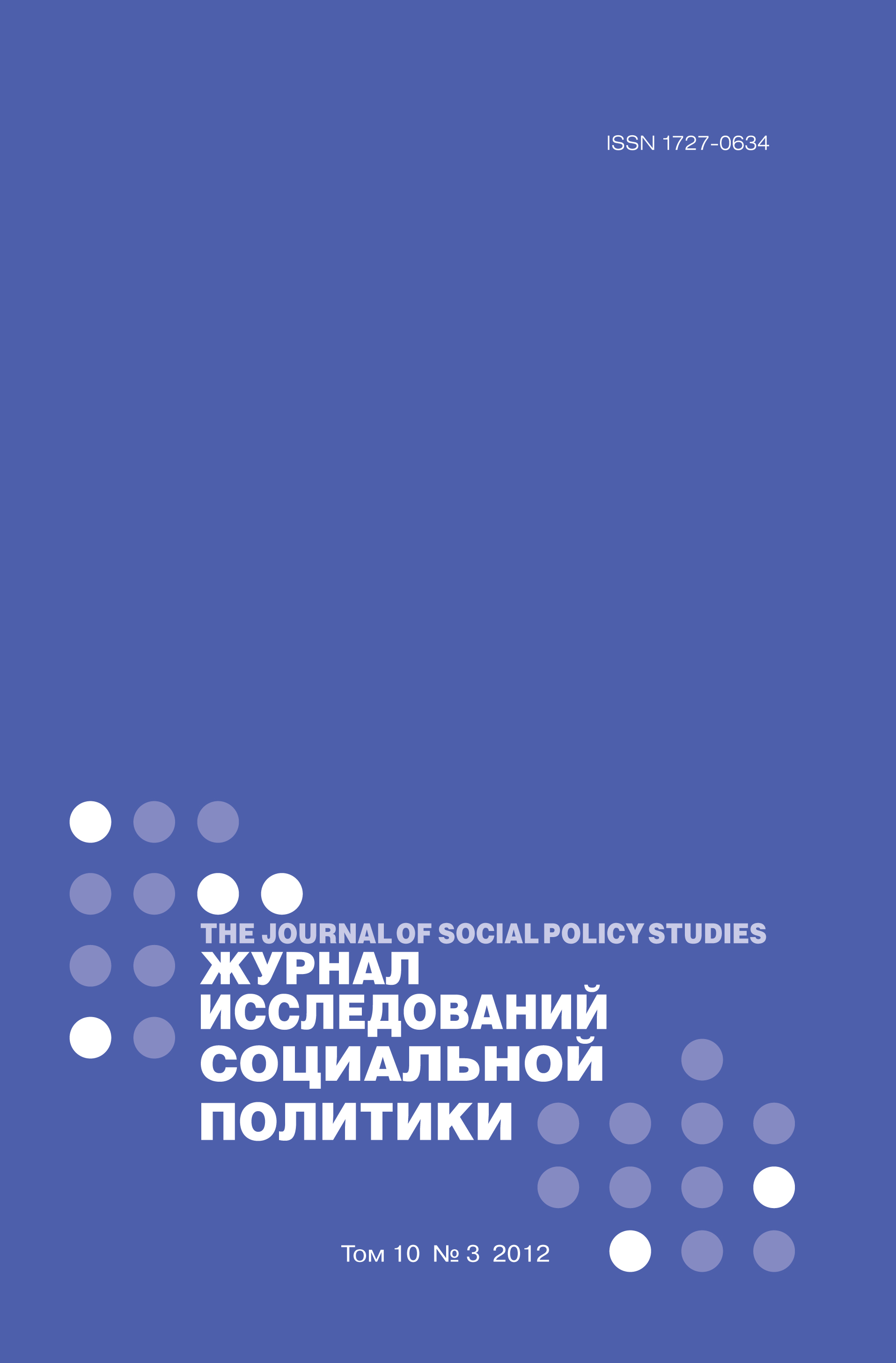The Work-Family Balance: Policy and Individual Mothers’ Strategies
Abstract
The aim of this article is to analyze strategies of combining motherhood and employment, or how the ‘work-family balance’ is played out in Russian households. Life/work balance can be seen as a system of beliefs, rules and influences aimed at reconciling work, family and parental duties. It can be viewed from three different perspectives: state policy, workplace policy, and household strategies. In Russia, as in many other countries, the impetus of responsibility for childcare falls mainly on the mother, whereas men face more pressure to enact ‘responsible fatherhood’ via being the main breadwinner for the family. This research is based on semi-structured interviews in St Petersburg with fifteen middle-class couples aged 25-35. The notion of work-family balance is discussed from a theoretical viewpoint, with a stress on the gendered nature of the issue.
Following analysis of the data, the author suggests that work-family balance in Russia is largely constructed at the level of the household, and depends on the personal and family resources available to couples, as well as on the individual choices of working adults. Contemporary Russian family policy does not provide institutional supports for working parents to combine motherhood and employment. However, motherhood is still a crucial part of the life project for Russian women. As a result, working mothers seek to find family-work balance mainly via strategies which emphasise their roles as mothers first and foremost. This is often at the expense of their professional lives as individuals, as they seek a job which allows them to take summer leave, fits their children’s schedules, is located close to nursery or school, and has a ‘good boss’ who takes their roles as mothers into consideration. Not only does this point to continuities from the late Soviet period, but it also suggests that for working women becoming a parent may act as a catalyst for a re-traditionalisation of gender roles within the family, an issue that state policy fails to prioritise.















